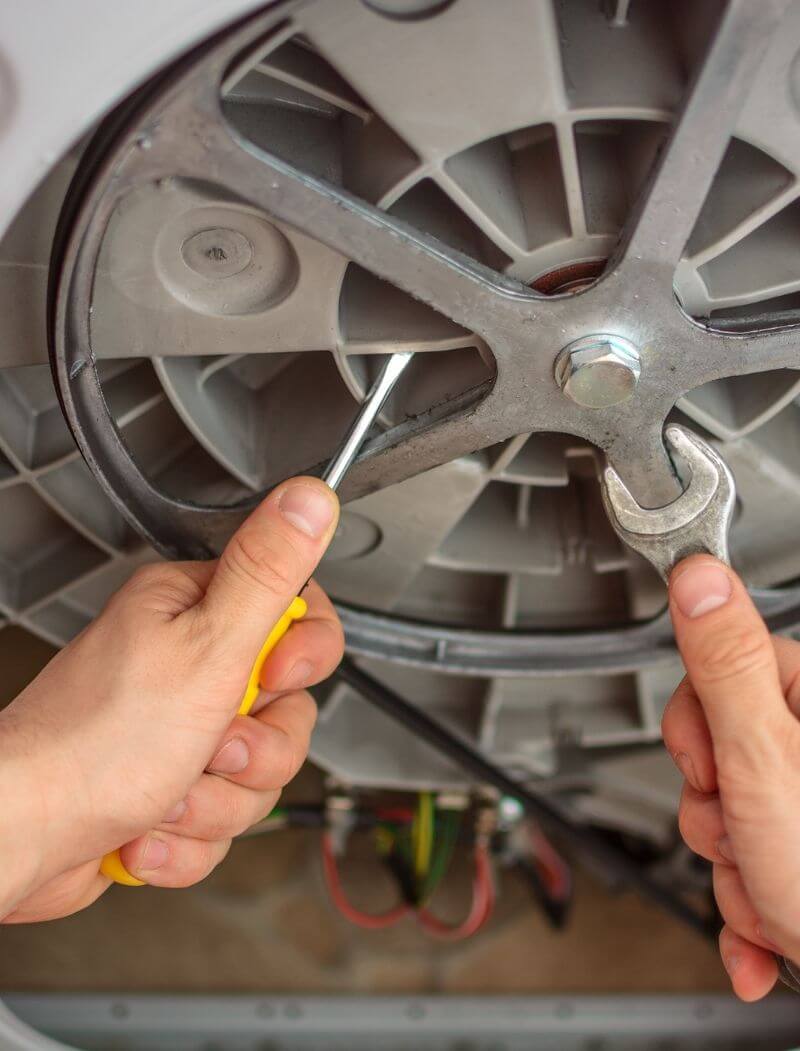101 Common Issues That Cause Dryers To Stop Working
The common misconception of many is that once appliances stop working, it is pretty much time to toss it out and buy a new one. What many do not know is that in terms of washing machines and dryers, they are actually quite simple machines. While you may not be able to fix them yourself, as the electrical components are quite dangerous to an untrained hand, Unit Appliances can assist you with this.
If your dryer has recently stopped working, this can be a hassle because nothing screams a burden more than unable to dry a bunch of freshly washed clothes. Not only that, but dryer units are large and expensive, which can be difficult to get rid of and buy a new one. If you are looking for dryer repairs in Melbourne, Unit Appliances is here to help. This guide is to assist you in making a quick diagnosis of what would make a dryer unit stop working:
Quick Tips Before You Throw Your Dryer Out
Sometimes, a broken dryer is due to a single component that is damaged, and often not the whole machine experiencing a breakdown. So before you go out and toss your broken dryer, take a look at some of the things that are weak or damaged, such as:
Electricity Lines
Most dryers of today are electrically powered, meaning that electricity lines play a big role in how they work. Quickly test if the outlet is working by plugging another appliance into it. If the appliance does not turn on, this can be a circuit issue and not an issue with the dryer. Sometimes, a blown fuse or a tripped circuit breaker can be the issue. Other possibilities include the unit not receiving the proper voltage, or loose wiring on the power cord.
Motor
Dryers operate through a drum that spins while generating heat to ensure clothes do not get burned. Motors are susceptible to burning out, as they use gears that run in high revolutions per minute. The heat generated by the unit plus the heat due to friction can cause this. Also, motors can have their wires severed eventually depending on the age of the dryer’s parts. Replacing the motor should do the trick.
A Snapped Belt
Motors drive the dryer drum through a belt that is made of rubber or some tough material. Over time, this belt can wear out and snap, preventing the drum from rotating. A simple belt replacement can do the trick. The pulley that helps the belt move should also be replaced at the same time the belt is to avoid one part wearing out prematurely over the other.
Clogged Exhausts
A dryer requires airflow to operate properly. What happens often is that lint is clogging the exhaust system of your dryer. Lint buildup can be quick depending on how many dry cycles you run, and if you don’t regularly clean, you may have a clogged exhaust system. Be sure to address this if it is confirmed, as lint is a fire risk if ignited.
Switches
All dryer units will only operate once the door is completely closed, which is determined by a switch that detects the closure. If that switch is damaged, the machine will not start because, in its programming, the door is still open. While this problem is more common with older machines, it can still happen to any dryer, and this is often an easy fix. You will find the switch by the door, as it often looks like a button you can press.
Conclusion
Dryers are quite simple machines that have only gone through minor improvements throughout recent years. Because of this, their mechanisms are still quite similar and most changes done are for safety reasons, such as shifting to electric dryers from gas-powered ones. With many appliances of today only requiring a few replacement parts to run again, it baffles us as to why people toss them out immediately.
Unit Appliances is a premium repair service that offers washing machine, dishwasher, and dryer repairs in Melbourne. Before throwing out your appliances, let us have a look. Get in touch with us today to see how we can help!


0 Comments